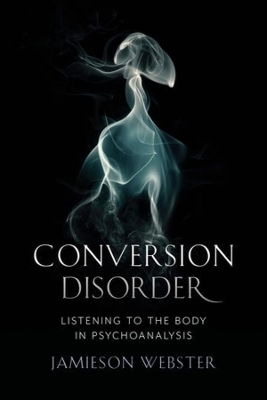
Conversion Disorder
Listening to the Body in Psychoanalysis
Seiten
2022
Columbia University Press (Verlag)
978-0-231-18409-0 (ISBN)
Columbia University Press (Verlag)
978-0-231-18409-0 (ISBN)
Part memoir, part clinical case, part theoretical investigation, this book searches for the body. Jamieson Webster traces conversion’s shifting meanings in an intimate account of her own conversion from patient to psychoanalyst, as well as her continual struggle to apprehend the complexities of the patient’s body.
Conversion disorder—a psychiatric term that names the enigmatic transformation of psychic energy into bodily manifestations—offers a way to rethink the present. With so many people suffering from unexplained bodily symptoms; with so many seeking recourse to pharmacological treatments or bodily modification; with young men and women seemingly willing to direct violence toward anybody, including themselves—a radical disordering in culture insists on the level of the body.
Part memoir, part clinical case, part theoretical investigation, this book searches for the body. Is it a psychopathological entity; a crossroads for the cultural, political, and biological in the form of care; or the foundation of psychoanalytic work on the question of sexuality? Jamieson Webster traces conversion’s shifting meanings—in religious, economic, and even chemical processes—revisiting the work of thinkers as diverse as Benjamin, Foucault, Agamben, and Lacan. She provides an intimate account of her own conversion from patient to psychoanalyst, as well as her continuing struggle to apprehend the complexities of the patient’s body. When listening to dreams, symptoms, worries, or sexual impasses, the body becomes a defining trope that belies a vulnerable and urgent wish for transformation. Conversion Disorder names what is singular about the entanglement of the fractured body and the social world in order to imagine what kind of cure is possible.
Conversion disorder—a psychiatric term that names the enigmatic transformation of psychic energy into bodily manifestations—offers a way to rethink the present. With so many people suffering from unexplained bodily symptoms; with so many seeking recourse to pharmacological treatments or bodily modification; with young men and women seemingly willing to direct violence toward anybody, including themselves—a radical disordering in culture insists on the level of the body.
Part memoir, part clinical case, part theoretical investigation, this book searches for the body. Is it a psychopathological entity; a crossroads for the cultural, political, and biological in the form of care; or the foundation of psychoanalytic work on the question of sexuality? Jamieson Webster traces conversion’s shifting meanings—in religious, economic, and even chemical processes—revisiting the work of thinkers as diverse as Benjamin, Foucault, Agamben, and Lacan. She provides an intimate account of her own conversion from patient to psychoanalyst, as well as her continuing struggle to apprehend the complexities of the patient’s body. When listening to dreams, symptoms, worries, or sexual impasses, the body becomes a defining trope that belies a vulnerable and urgent wish for transformation. Conversion Disorder names what is singular about the entanglement of the fractured body and the social world in order to imagine what kind of cure is possible.
Jamieson Webster is a psychoanalyst in New York. She has written for the New York Review of Books, Artforum, the Guardian, and the New York Times. Her books include The Life and Death of Psychoanalysis (2011) and Stay, Illusion! (with Simon Critchley, 2013).
Introduction
1. Daybreak
2. Music of the Future
3. Father Can’t You See
4. Never the Right Man
5. I Am Not a Muse
6. Hysterical Ruinology
7. Coitus Interruptus
8. Three Visions of Psychoanalysis
9. How to Splinter / How to Burn
10. Forged in Stones
11. The Sliding of the Ring
12. The Analyst’s Analysis
Acknowledgments
Appendix
Notes
References
Index
| Erscheinungsdatum | 16.02.2022 |
|---|---|
| Verlagsort | New York |
| Sprache | englisch |
| Maße | 152 x 229 mm |
| Themenwelt | Geisteswissenschaften ► Psychologie ► Psychoanalyse / Tiefenpsychologie |
| Geisteswissenschaften ► Sprach- / Literaturwissenschaft ► Anglistik / Amerikanistik | |
| Geisteswissenschaften ► Sprach- / Literaturwissenschaft ► Literaturwissenschaft | |
| ISBN-10 | 0-231-18409-3 / 0231184093 |
| ISBN-13 | 978-0-231-18409-0 / 9780231184090 |
| Zustand | Neuware |
| Haben Sie eine Frage zum Produkt? |
Mehr entdecken
aus dem Bereich
aus dem Bereich
Grundlagen, Behandlungstechnik und Anwendung
Buch | Softcover (2022)
Kohlhammer (Verlag)
CHF 48,95
den Stand der Traumaverarbeitung erkennen und Behandlungsschritte …
Buch | Hardcover (2023)
Klett-Cotta (Verlag)
CHF 49,95
vom Mythos zur Psychoanalyse des Selbst
Buch | Softcover (2023)
Kohlhammer (Verlag)
CHF 39,20


